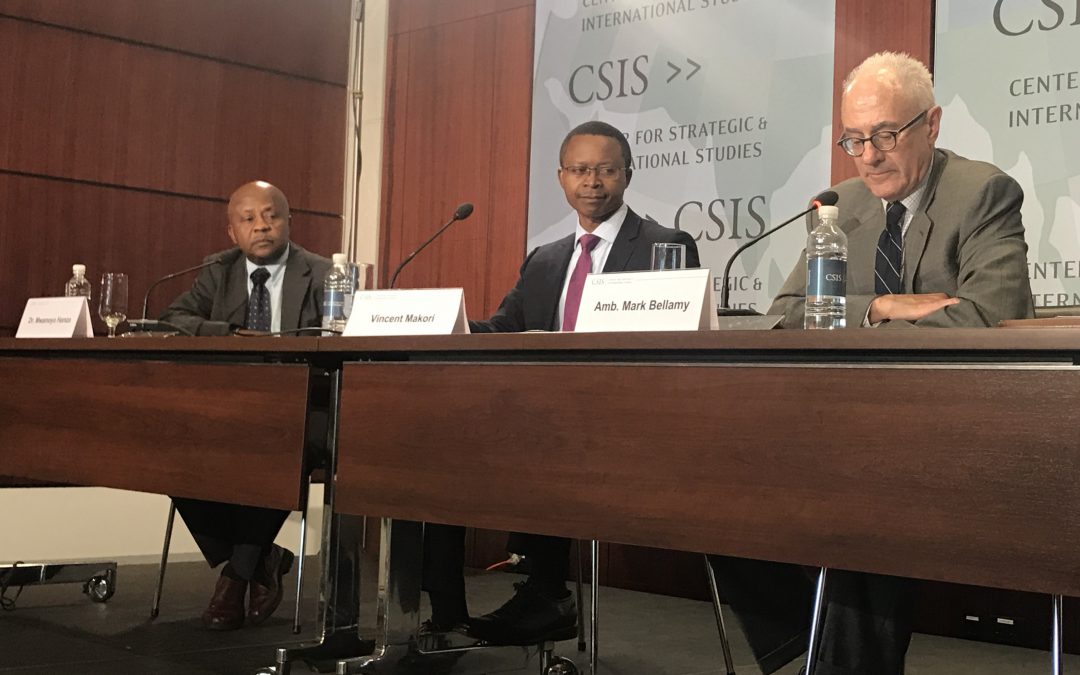WASHINGTON — Kenya’s near 80 percent voter turnout and lack of extreme violence mark the country’s move toward a more peaceful, democratic election process, according to a panel of Kenya specialists.
Incumbent President Uhuru Kenyatta, who was first elected in 2013, won the vote with 54 percent. Opposition leader Raila Odinga, who also lost to Kenyatta four years ago, said Wednesday he will challenge the Aug. 8 election results in court, claiming the voting technology was manipulated.
Adding to the issue, Chris Msando, Kenya’s Independent Electoral and Boundaries Commission information communications technology manager, was found tortured and murdered in late July.
“The timing of his disappearance and his murder was really disturbing,” Voice of America Swahili Service Chief Mwamoyo Hamza said at a Wednesday discussion hosted by Washington, D.C.’s Center for Strategic and International Studies. “It left room for a lot of speculations.”
Voice of America editor Vincent Makori said that there has not yet been any proof of Odinga’s claims.
“We don’t have any evidence whatsoever that there was any rigging,” Makori said.
Kenyan Ambassador to the U.S. Robinson Njeru Githae, who was in the audience, noted that no elected officials or any of the 8,000 domestic and international election observers have contested the results.
Hamza praised Odinga’s decision to go to court to dispute the outcome because it will provide a legal and transparent result that will help Kenyans be confident in the system.
“Everything considered, I think the first winners are Kenyan people,” he said.
Hamza, Makori and former U.S. Ambassador to Kenya William M. Bellamy said that Kenyans were determined to keep the peace in this election after a disastrous presidential race in 2007. Odinga lost that vote to Mwai Kibaki, but international observers concluded there had been widespread electoral fraud.
The contested outcome brought the country close to civil war, left more than 1,000 people dead and displaced 500,000, according to Human Rights Watch. So far, that kind of violence has not surfaced in the aftermath of the August election — although 24 people have been listed killed by the Kenya National Commission of Human Rights. Bellamy said most of those deaths can be attributed to quick-triggered Kenyan security forces.


